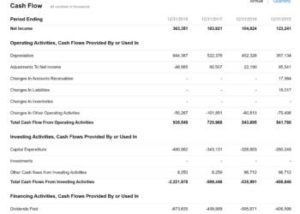Recently I was looking into Tanger Outlet malls, and Iron Mountains, both of these are REITs. There are two primary reasons I was looking into those two companies. First, I worked with Iron Mountain, so I have some idea about what they do. And I used to visit Tanger Outlet mall when I was in Boston. So, I am familiar with these outlet malls. While my familiarity with these businesses is the primary reason, the secondary cause is the dividend yields. Since these are REITs, the dividends are not qualified, and as non-qualified dividends, I have to pay tax at the usual rate for these incomes. But there was another interesting fact I noticed, which was REITs have a higher than 100% payout ratio.
So, while checking the stats out, I noticed that the payout ratio is more than 100% for these REITs. And I was curious to find out why and how this is possible. After research, I figured out the math.
So, Why Do REITs Have Higher Than 100% Payout Ratios? For REITS, the depreciation of properties is usually massive, and that gets an address with the net income and takes free cash flow to a great level. The dividend is paid out as part of dividends which is usually way greater than net income; hence the payout ratio is more than 100%. I have given the iron mountains example below.
REITs are real rental incomes, and that is, the dividends are not qualified. They sell properties. They buy properties. Usually their purchase property with debt. That is why the debt is equity ratio is out of order.
What is a Dividend Payout Ratio?
Businesses usually can do few things with the cash they generate.
- They can pay off debt
- They can put the cash in existing business
- They can acquire new businesses
- They can buy back stocks
- Or they can pay part of that cash as dividend to the shareholders
The Dividend payout ratio of earnings paid out as dividends to the shareholders and this is expressed as a percentage of the company’s earnings. Or the payout ratio can be expressed as dividends paid out as a proportion of cash flow. You cannot use those ratios for REITS. For Reits you need to know FFO and AFFO.
The Formula for the Payout Ratio Is
PR=Total dividends\Net income
The general businesses have less than 100% as payout ratio. If the payout ratio is low as 30% or even less than 50%, that means, the company is trying to grow their business. One more good thing is the dividend can go up in the future.
Higher payout ratio means there is less of a chance of dividend going up. If the payout is more than 100% ( we are not talking about REITs here) that might mean the company is taking debt and paying out as dividends.
For REITs dividend payout is not the right way to see the valuation or dividend sustainability. For REITs we need to check the adjusted funds from operations or AFFO.
What are Adjusted Funds From Operations or AFFO?
AFFO is a key indicator to analyze REITs. Considering the maintenance cost of the real estate capital expenditure cost adjusted ( or subtracted) from funds from operations we get he Adjusted funds from operation.
How to Calculate Funds From Operations?Funds From Operations = net income + amortization + depreciation – capital gains from property sale
How to Calculate Adjusted Funds From Operations?
Adjusted Funds From Operations = FFO + rent increases – capital expenditures – routine maintenance amounts
or, AFFO = ( net income + amortization + depreciation – capital gains from property sale) + rent increases – capital expenditures – routine maintenance amounts
IF you consider it to be your rental property, these calculations will all make sense. And you will figure out why REITs Have Higher Than 100% Payout Ratios.

This is Cash flow statement of Iron Mountain. If you see the stats for the financial year 2018
Net Income 363,351
Depreciation 644,387
Total Cash Flow From Operating Activities 935,549
Capital Expenditure -460,062
Dividends Paid -673,635
While net income is low, the depreciation is massive and that takes the cash flow to a higher level. And the company can pay out a high level of dividend from the cash flow. As the dividend is more than net income the payout ratio is more than 100%. I hope you are clear why REITs Have Higher Than 100% Payout Ratios now. It is just due to accounting practices.
I usually buy REITs in my Robinhood account. I made a comparison of Robinhood and Webull, you can read it here.
How Much Do REITs Payout?
The real estate investment trusts payout 90% of their taxable income to the unitholders.

Dividend Payout Ratio Greater Than 100 for ReITs
In the case of ReITs, the net income is lower than the depreciation which drives the cash flow to a higher level. And the company can pay out a high level of dividend from the cash flow. The dividend is more than the net income and that is why the payout ratio is more than 100%.
How Do reits Measure Earnings?
For ReITs we need to calculate the Adjusted Funds From Operations or AFFO. We need quite a few parameters to find out the AFFO.
Adjusted Funds From Operations = FFO + rent increases – capital expenditures – routine maintenance amounts
FFO or Funds From Operations = net income + amortization + depreciation – capital gains from property sale

